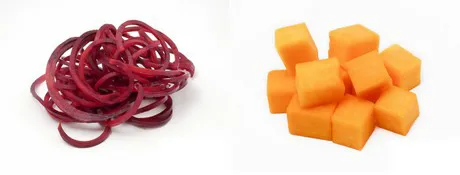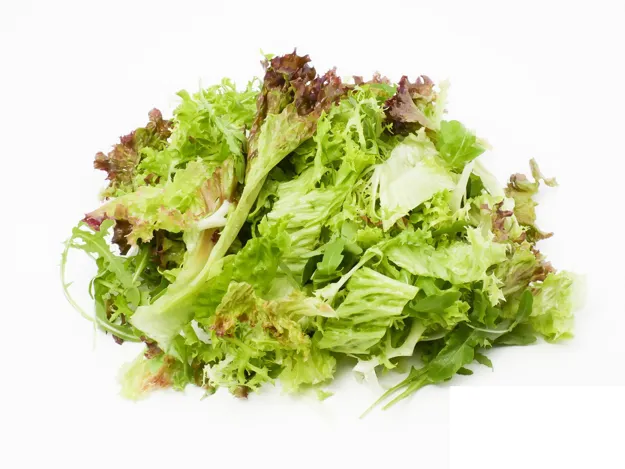“Because of the increasing staff shortages in catering, at all levels and in all fields, we’ve seen a growing demand for ‘custom-made fresh produce.’ We can supply cut vegetables to size, and we can fulfil a large part of that mise-en-place,” says Joost van Altena of catering wholesaler Miedema-AGF in Amsterdam, the Netherlands. Miedema-AGF has its own modern processing hall and a fleet of cars for conditioned transport.

“We supply custom fresh products on land, for shipping and air.”
“Our company is busy 24 hours per day, during the day the products that arrive are put away, and each order is prepared in the evenings. We can process orders up to one in the morning, and we start supplying at five in the morning. We don’t need large stocks because we produce to order, and this results in fresher products, after all, ‘quality tastes better.’ Because we serve various segments in catering, from institutional kitchens, caterers, health care institutions and company restaurants to restaurants and cafeterias, order and delivery times are spread throughout the day. Orders can be placed up to ten in the evening six days per week for processed products and up to one in the morning for unprocessed products. These are then delivered at the desired time the next day. That’s a preference in particular for night-catering in Amsterdam and Zandvoort. Besides, we deliver everything to size, lettuce mixes, raw vegetables, stir-frying mixes, and more.”

Challenges in availability
The past, hot summer naturally had its challenges. “Occasionally it was difficult to get plenty of kilos, and we sometimes had to go in several directions to meet demand. If necessary, we naturally look for alternatives, but that’s not always possible, and chefs have to be able to deal with that creatively.” The media payed a lot of attention to the production problems, and that resulted in more understanding among chefs. “They’re often a bit further removed from it, and we do our best to inform them. Our website, for example, also features product videos, so that the chefs can get to know the faces behind the products. On the other hand, we’ve noticed growers enjoy knowing where their products end up. Connecting these two worlds is actually good for everyone, and that’s why we put quite a bit of energy into this.”

The availability of products isn’t just dependent on weather circumstances, retail also has its influence, according to Joost. “Kale is a good example of that. Retailers want that on shelves from morning to night, and they enter into contract and price agreements. It could then happen that kale is available in retail, but that we can’t supply it, or that our kale is more expensive. You have to be able to explain that.” These kinds of problems are only found with household vegetables. The catering wholesaler can respond to demand for specialities well. For instance, they supply edible violets year-round, but also common ice plant or Italian young kale leaves, a good alternative to lettuce, which experienced shortages in the past summer.
Growth
It’s good that the number of catering companies is growing considerably, particularly in Amsterdam and the surrounding area. “The economy is being boosted and that can be noticed - unemployment is lower, and there’s more money for ‘food supply.’ In Amsterdam, dozens of catering establishments open every week. A lot of areas are being redeveloped, like the Bijlmer, and business catering is also growing. On the Zuidas, people don’t bring sandwiches to work, but they buy them or they have lunch in restaurants, and the people working overtime also need food,” Joost concludes.
For more information: Miedema-AGF
Miedema-AGF
Joost van Altena
joost@miedema-agf.nl
T +31 (0)20 62 20 048
M +31 (0)6 55 12 05 80
www.miedema-agf.nl
